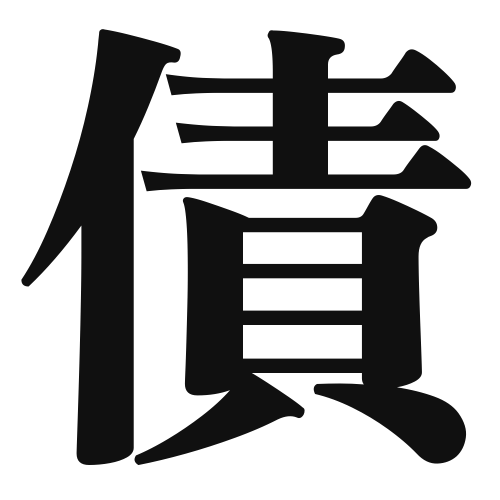1. Overview of Meaning
The kanji “債” (sai) primarily means “debt” or “obligation.” It refers to a financial obligation or a sum of money that is owed to someone.
2. Formation and Radicals
The kanji “債” is a compound character (会意文字) that combines two elements: the radical “亻” (which indicates a person) and “才” (which means “talent” or “ability”). Together, they convey the idea of a person’s obligation or debt.
The radical “亻” is often associated with human-related concepts, emphasizing the personal aspect of debt.
3. Examples of Usage
Common words and phrases that include “債” are:
- 債務 (saimu) – debt obligation
- 債権 (saiken) – claim or right to collect a debt
Example sentence in daily conversation:
「彼は多くの債務を抱えている。」 (Kare wa ooku no saimu o kakaete iru.) – “He is burdened with a lot of debt.”
4. Synonyms and Antonyms
Similar kanji with related meanings include:
- 借金 (shakkin) – loan or borrowed money, which emphasizes the act of borrowing.
- 負債 (fusai) – liabilities, which refers to the total amount of debt.
Antonyms include:
- 資産 (shisan) – assets, which refers to what one owns, contrasting with debt.
5. Cultural and Historical Background
The concept of “債” is deeply rooted in Japanese culture, reflecting the importance of financial responsibility and social obligations. In traditional Japanese society, debts were often seen as a matter of honor.
Proverbs and idiomatic expressions related to “債” include:
- 「借りたものは返すべき」 (Karita mono wa kaesu beki) – “What you borrow should be returned,” emphasizing the importance of repaying debts.
